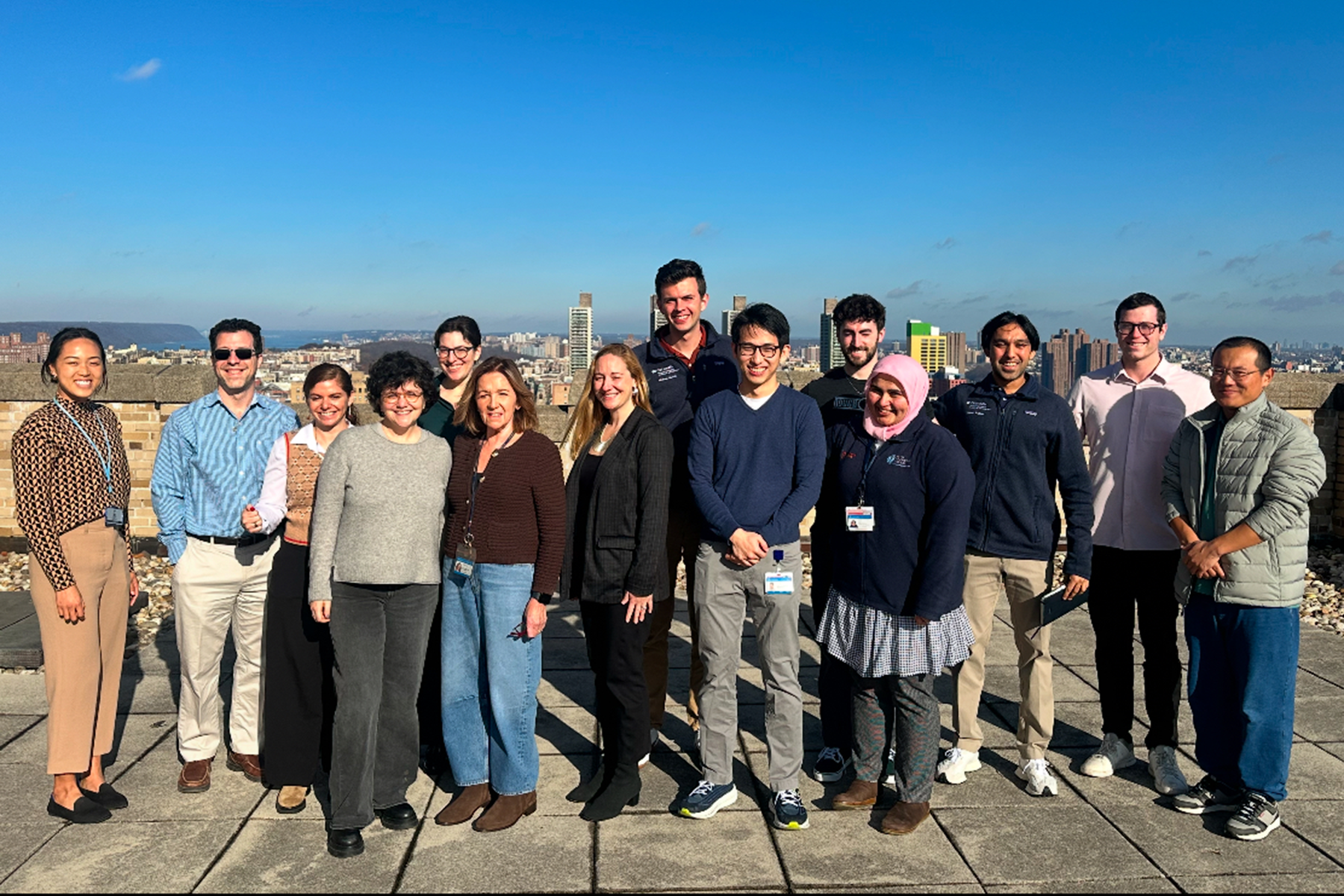DBMI Hosts Clinical AI Workshop:
From Idea to Deployment to Making A Difference
Clinicians and clinical scientists within the Columbia University Vagelos College of Physicians and Surgeons joined an AI Workshop focused on ‘From Idea to Deployment to Making A Difference’ Dec. 17. This event, hosted by the Department of Biomedical Informatics (PH-20, Conference Room 200), provided a framework to guide researchers through the process for implementation of AI tools in the clinical setting.
What this workshop was about: In the life cycle of an AI project in healthcare, there are many steps and stakeholders that are involved and not all in a linear fashion. This workshop aimed to give an overview of these steps and stakeholders, so that the tool can be successfully deployed and sustained. Faculty went through a use case of an AI project which has been developed, deployed, evaluated, and transferred across different hospitals in the country. The workshop also hosted breakout sessions that focus on different aspects of this cycle, where you can apply these steps to your own project.
Who the workshop targeted: Clinicians and scientists starting to embark on an AI project with the vision for deploying in the clinical setting. Participants’ AI projects were well-defined from a computational and modeling standpoint, but deployment plans are not yet well-formed or finalized.
What was taught at the workshop:
– when and how to approach executive leadership to support successful deployment
– what content and communication strategies to consider when creating network of clinician champions and end users
– which stakeholders to involve in your EHR integration strategy
– what governance and legal criteria to consider prior to, during, and post deployment
Agenda
9 -9:30 am – Continental Breakfast
9:30-10 am – AI Deployment Landscape Overview (Lauren Richter, MD)
10-10:45 am – Use case: Implementing an early warning score in the hospital setting for patient deterioration (Sarah Rossetti, PhD)
10:45-11:15 am – Use Case: Implementing a multi-site tool for precision breast cancer prevention (Rita Kukafka, PhD)
11:15-11:30 am – Break
11:30 – 12:15 pm – Designing Your Toolkit: from idea to deployment to making a difference (Breakout Groups)
Breakout Group A: Executive Leader Stakeholder Engagement
– Initial and continuous engagement with Executive Leadership
– Considerations of financial implications and cost/benefit analysis
– Shared governance considerations
Breakout Group B: Technical Stakeholder Engagement
– Considerations for computational needs
– Considerations for data availability needs
– Bias auditing framework for fairness and model shifts
Breakout Group C: Engagement with Clinical End-Users
– Strategies for engagement with end users and identifying workflows
– Training and engaging with end users for the use of AI tool
– Strategies for sustaining end user engagement with AI tool
12:15-1:00 pm – Toolkit Design Report-Outs and Closing Remarks



